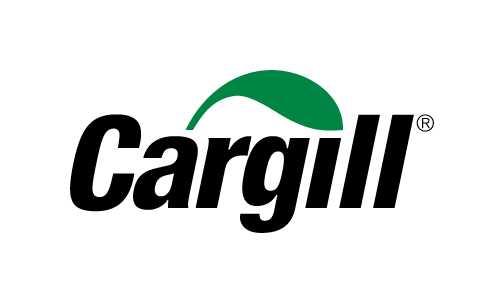ACCRA, Ghana – Cargill has completed a US$13 million expansion of its cocoa processing facility in Tema, expanding the company’s cocoa-grinding capability to match growing consumer demands for cocoa powder. In recognition of the achievement, the President of the Republic of Ghana, His Excellency Nana Addo Dankwa Akufo-Addo attended the ceremony as the Special Guest of Honour and was received by an executive team led by Harold Poelma, President of Cargill Cocoa & Chocolate.
The multi-million-dollar investment took sixteen months to complete and increased the plant’s grind capability by 20%, bolstering its annual production capacity to 90,000 tonnes. The initial nameplate capacity of 65,000 tonnes was pushed to 75,000 tonnes through the efficient management by the Ghanaian team, giving room for this expansion. The facility upgrades will also support hundreds of new direct and indirect jobs. This latest investment is the culmination of Cargill’s 13 years of operational presence in Ghana, during which the direct and indirect employment at the plant grew from 400 to 530.
Cargill’s Harold Poelma explained that the project, which was sparked by the growing global demand for cocoa, also supports the company’s long-term commitment to continuously invest in the cocoa sector and create more opportunities within the value chain.
“This kind of investment can serve as an engine to jump-start new economic activities,” Poelma said. “It is part of our ongoing effort to build sustainable, local agri-food businesses, diversify revenue streams and support a thriving cocoa sector.”
The plant expansion project aligns with the government of Ghana’s vision to accelerate economic progress through agricultural industrialization whilst improving the welfare of farmers and solidifying the country’s position as one of the world’s largest producers of cocoa.
President of the Republic of Ghana, Nana Addo Dankwa Akufo-Addo highlighted this point in his keynote address.
“I want to congratulate the management and staff for their significant contribution to the success of this company,” he said. “The commissioning of this expansion today underscores the importance of the private sector to government’s industrial transformation program.”
He further reflected on the impact that Cargill Cocoa & Chocolate has made in the country in creating a more sustainable cocoa sector and acknowledged that the plant expansion will present an avenue for economic development.
“I’m of the firm conviction that industrialization of private sector development is a great opportunity to expand the economy and create more jobs, particularly for our young people. I also believe that for this country to develop rapidly, there is the need for deliberate attempts to add value to our natural resources.
“It is against this background that I would like to commend Cargill for what they are doing in our cocoa sector.” the President said.
Plant Manager, Mr. Richard Adjei in a short address, praised the highly skilled Ghanaian team who run the Plant.
“I am happy to note, ladies and gentlemen that this Plant which is now the biggest cocoa processing Plant in Ghana is run and managed 100% by Ghanaians. Our staff here is the reason we are where we are today and Cargill Ghana is an example of Ghanaian expertise and efficiency and by that our staff earned the right to grow the plant.” Mr Adjei remarked.
Alongside the commissioning of the Tema processing facility, Cargill highlighted other efforts to support sector transformation and social impact, in partnership with state agencies such as COCOBOD and other key stakeholders such as CARE International and Safe Water Ghana. In 2021 alone, Cargill invested about GHc12m in supporting local community projects to build solar water systems and add school classroom blocks. In addition, Cargill provided funding and support for nearly 70 other community-identified projects.
Speaking about the importance of working with partners, Aedo van der Weij, Managing Director, Cargill Ghana, said: “Establishing close partnership with government agencies, technical partners and local community leaders enables us to make meaningful impacts in the communities where we do business. They share our vision and help guide our efforts in creating a sustainable cocoa supply chain. Working together, we can achieve far more than we ever could alone.”
In that spirit, Cargill continues to drive progress in the areas of farmer resilience, community well-being, environment, and transparency, delivering lasting impact across the value chain. With the use of GPS polygon mapping and a Cooperative Management System (CMS) through its CocoaWise™ digital platform, it has achieved 100 percent traceability and accountability in its Ghanaian supply chain from farm to factory. Its reputation as a leading and reputable player in the cocoa industry is strengthened by its commitment and efforts to address complicated issues such as child labour and deforestation.
In attendance at the event held at the plant in Tema was the Ambassador of the United States of America H.E. Stephanie Sullivan, the Deputy Minister of Trade and Industry Hon. Michael Okyere Baafi. The current Board Chair of COCOBOD, Mr. Peter McManu and the immediate past one Hackman Owusu Agyemang, the Chief Executive of COCOBOD, Joseph Boahene Aidoo and his deputy Dr Emmanuel Opoku, as well as executives from the Free Zones Authority and Cargill partners and stakeholders such as CARE, Solidaridad were also present.

















 CAPS: the new proprietary system using capsules made of 85% recycled aluminium
CAPS: the new proprietary system using capsules made of 85% recycled aluminium